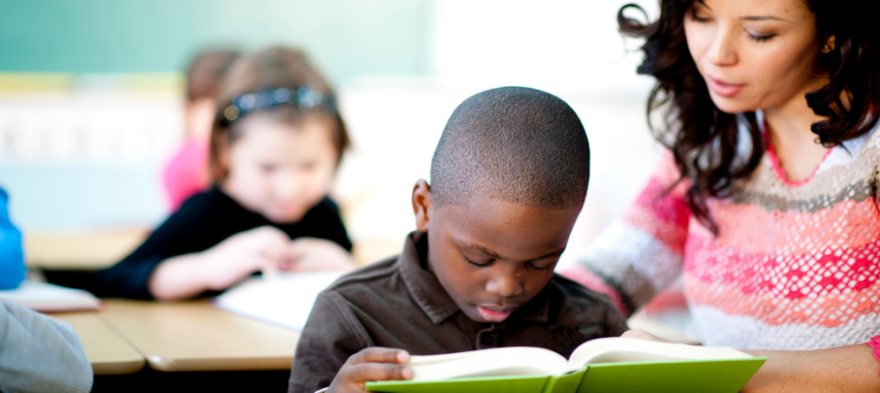
Apr 12, 2021 12:00:00 AM
by Kate Walsh
Before the pandemic, approximately one million children, year in and year out, ended fourth grade at best barely able to read. It’s anyone’s guess what that number looks like now. As states and districts prepare to pour billions of dollars into stemming instructional loss—either through a return to in-person school or the launch of national tutoring programs—when it comes to reading, these resources are only going to get us so far.
An uncomfortable question bears asking: [pullquote]Will teachers (or tutors) have the expertise in reading to deal with the breadth and depth of COVID fallout?[/pullquote] Almost certainly, it’s no longer just a million kids, but multiple millions of kids who must rely on knowledgeable adults to get them back on track.
If you ask teachers, a lot of them will tell you the answer is no; they didn’t have the knowledge about early reading instruction that they needed before the pandemic and they certainly don’t have it now. Look at the explosive growth of the Facebook group “Science of Reading - What I Should Have Learned in College,” which grew to over 70,000 teachers in a matter of a few months. Membership in the Reading League, a national non-profit promoting evidence-aligned reading instruction, has seen similar growth, opening five new state chapters last year with another 12 getting ready to launch this year. The education publisher Amplify recently hosted a free symposium on teaching kids to read, frying out its web conferencing platform when enrollment exceeded the 17,000-person capacity. The demand is unprecedented.
[pullquote]Witness the heartache of veteran teachers who suddenly realize that they’ve unknowingly let their students down year after year, all because of their own misguided preparation.[/pullquote] They too are victims of poor science—not as much as their students, but victims nonetheless.
Since 2013 the National Council on Teacher Quality has been looking under the hood of teacher preparation programs, examining the evidence that they prepare teachers in the instructional methods in reading found to be consistently most effective. While we were excited to see that programs had reached a real tipping point in our latest release of data with now half of all programs acknowledging that certain methods for teaching reading are eons more effective than others, there’s still so far to go.
With $125 billion heading to states and districts through the American Rescue Plan Act, COVID has presented an opportunity with unprecedented resources to ensure that every child can get back on track, but only if we acknowledge that we must start with providing teachers with the necessary training and tools. Whether that’s a first grader learning in the classroom; a third grader making up for lost time due to the pandemic; or an eighth grader who was never given the evidence-based, scientific building blocks of reading; literacy is the cornerstone of how we reframe and jumpstart education in this country.
Just last month, new research from Chicago demonstrated how Saga Education’s math tutoring approach allows students to achieve tremendous growth. What we need now is a similar approach for literacy, in which evidence-based teaching is combined with personalization to help all students improve.
[pullquote]Most important is this fact: all but a tiny percentage of children can be taught to read.[/pullquote]
Science can do miraculous things. It can produce a vaccine in record time for an illness that didn’t exist a few years ago. Science—in this case, deep research on how the brain learns to read—is also how we teach literacy to students so that they have the foundational skills to continue growing and learning, whatever comes our way.
Kate Walsh has served as the president of the National Council on Teacher Quality since 2003. Driven by the belief that relevant, broadly-accessible, comparative data can transform teacher quality, Walsh has spearheaded efforts to instill greater transparency and higher standards among those institutions that exert influence and authority over teachers: states, districts, and teacher preparation programs. Notably, she produced the first-ever report card on the quality of the nation's teacher preparation programs. A relentless advocate for equitable access to great teachers, Walsh's work has been widely featured in The New York Times, The Washington Post, USA Today, NPR, and PBS NewsHour, among others.
Few issues in education spark more tension and debate than standardized testing. Are they a tool for equity or a burden on students? A necessary check on school systems or a flawed measure of...
Charter schools are public schools with a purpose. Operating independently from traditional school districts, they're tuition-free, open to all students, and publicly funded—but with more flexibility...
Despite the benefits of a diverse teaching force, prospective teachers of color fall out of our leaky preparation pipeline at every stage: preparation, hiring, induction, and retention. Here’s what...
Ed Post is the flagship website platform of brightbeam, a 501(c3) network of education activists and influencers demanding a better education and a brighter future for every child.
© 2020-2025 brightbeam. All rights reserved.
Leave a Comment